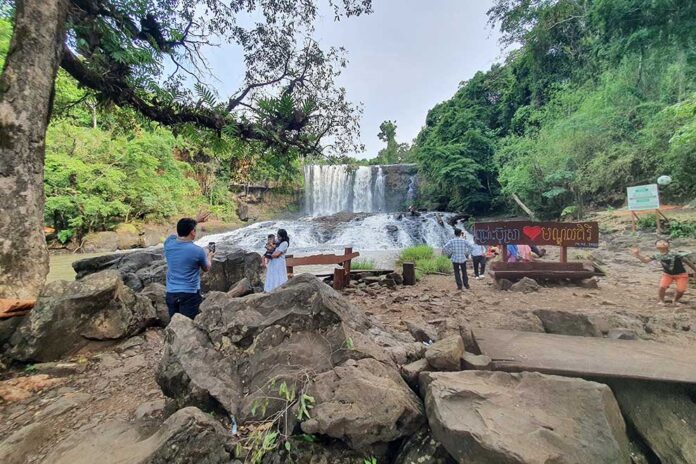The private tourism sector breathed a sigh of relief after the government announced that it would continue to exempt all types of monthly taxes – except value-added tax (VAT) – for hotels, guesthouses and travel agencies registered with the General Department of Taxation (GDT) that operate in the capital or in Siem Reap or Preah Sihanouk provinces, for three additional months to September.
Despite the government’s efforts, recovery in the industry has fallen short of expectations amidst uncertainty-induced shocks arising largely from heightened geopolitical and Covid-19 risks, especially in these three localities, where businesses are characteristically dependent on foreign travellers, insiders say.
Although the three additional months of tax exemption will ensure that some businesses can stay afloat as international tourism gradually ramps up, others may require more time due to the resulting economic pressure, they add.
The government announced the extension of tax exemptions in a July 15 press release, highlighting that applicable businesses must still file tax declarations and use the online e-VAT system every month during the July-September period.
The release said that the government will continue to provide mediation by freezing debt figures by the end of 2019 and excluding penalties from 2022 for the tourism sector.
It also encouraged tourism-related businesses to prepare skills development programmes for their employees, and thereby be eligible to apply for financial support from the Skills Development Fund (SDF) as needed.
Cambodia Hotel Association president Din Somethearith told The Post on July 17 that the move would be a major help for the owners of the tourism and related businesses most affected by Covid-linked drops in customers.
The measure only covers the capital and two provinces due to their population densities and amount of large hotels and locations which mostly rely on foreign customers, whereas businesses in other localities have fared much better due to a greater focus on domestic patrons, he said.
“As I see it, three months may be on the short side, but it won’t be a big problem, because the government will continue to look further – if there is a significant continued impact, the government will definitely continue to waive taxes,” he added.
As to when Cambodia can see a more profound uptick in international visitors, Somethearith suggested keeping tabs on outbound tourism trends from China, which he noted had been the Kingdom’s biggest source market for tourist arrivals prior to Covid. Ministry of Tourism figures show that 2.36 million out of the 6.61 million foreign visitors to the Kingdom recorded in 2019 were from China.
Pacific Asia Travel Association (PATA) Cambodia chapter chairman Thourn Sinan proposed an extension beyond September, stressing that despite the Kingdom’s steps towards a full reopening, tourism cannot return to its pre-Covid form immediately.
He also commented that the tourism recovery process has been undermined by rising oil prices and other impacts tied to Russia’s military offensive against Ukraine.
Nonetheless, Sinan said the extension was a major government favour, and a lifeline for many private tourism-related businesses to keep from going under, at least for the time being.
“The government should consider extending the tax deferral for as many months as possible, because the tourism sector is just now resuming. Since the situation isn’t very good at the moment, the owners of most tourism-aligned businesses still do not dare to recruit staff due to concerns over a lack of funds to pay employees,” he said.










